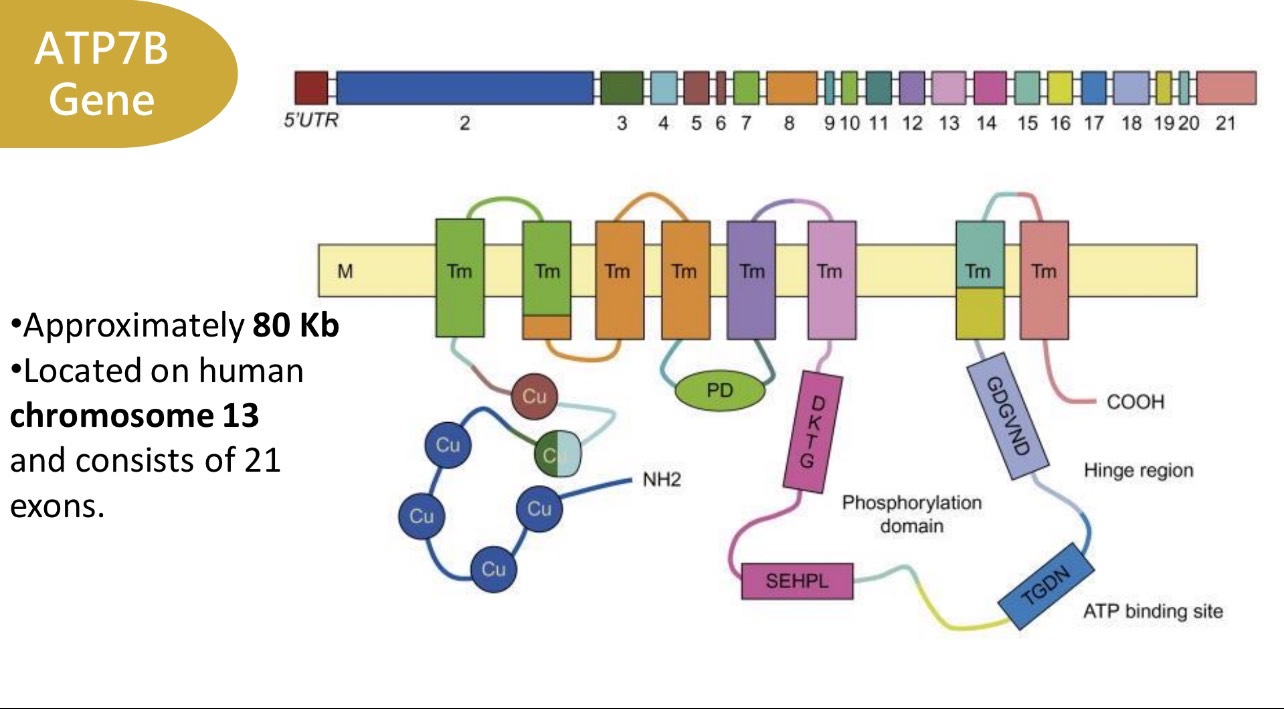Wilson’s disease
Wilson’s disease is an autologous recessive disease caused by abnormal copper ion metabolism. It is mainly caused by a mutation in the ATP7B gene in the 13th pair of chromosomes (as shown in the figure), which leads to the inability to synthesize proteins related to copper metabolism, thereby causing copper ions to accumulate in cells and cause damage. The currently recommended treatments include zinc supplementation, copper chelation, and dietary adjustments, but there is no good cure yet. In recent years, gene therapy has become popular. Currently, there are overseas clinical trials that use adenovirus vectors (AAV9) containing the normal ATP7B gene, which is injected into the human body to influence abnormal cells to express the normal ATP7B gene. Currently, there are no large-scale clinical trial programs in Taiwan. We hope that Taiwan will be able to join relevant clinical trial programs in the future to benefit patients with Wilson's disease.
